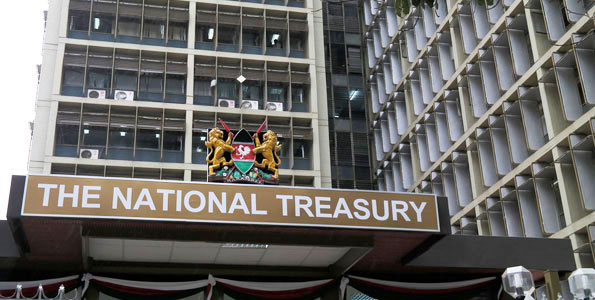Nairobi, July 4 - A huge chunk of public spending, more than Sh1 trillion, was never disclosed on the government’s official procurement portal, raising serious questions about transparency in how counties and ministries award contracts and spend development funds.
Although the law requires full disclosure of all government contracts, a review of the Public Procurement Information Portal (PPIP) shows that only Sh169.6 billion worth of tenders were published between July 2024 and June 2025, against spending of over Sh1.5 trillion on suppliers and contractors.
The failure to reveal this information, has drawn attention to the lack of accountability in government procurement and comes even as the State moves to introduce a digital system meant to tighten oversight and boost transparency.
According to data from the portal, national and county governments posted tenders worth Sh96.53 billion in the first half of the 2024/25 financial year.
The highest disclosures were made in August (Sh24.8 billion), followed by July (Sh14 billion), and September (Sh12.13 billion).
In the second half of the financial year, January to June 2025, only Sh73 billion in contracts were uploaded. Of that amount, Sh42.5 billion was linked to the Talanta Sports City Project alone, meaning more than half of all disclosed tenders in that period came from one project.
During the nine months from July 2024 to March 2025, both counties and national government departments spent Sh3.16 trillion in total. Out of this, Sh1.2 trillion was allocated to development projects, which should have been disclosed on the PPIP.
Spending breakdowns in the Controller of Budget’s report show that Sh395.05 billion went to development projects and Sh807.53 billion to operations and maintenance across all state departments and counties.
“The national government’s total expenditure for the first nine months (to March 2025) amounted to Sh2.87 trillion. This expenditure comprised ministerial development expenditure of Sh338.18 billion, recurrent ministerial expenditure at Sh1.2 trillion, and CFS (Consolidated Fund Service) expenditure at Sh1.31 trillion,” said Controller of Budget Margaret Nyakang’o.
Only the Sh1.31 trillion spent on CFS and Sh470 billion paid in salaries were exempt from procurement disclosures.
This means national government ministries were required to post tender details worth at least Sh1.07 trillion for both development and operational work, which they failed to do.
Counties were not spared either. From a total spend of Sh286.5 billion, only Sh155 billion was paid out as salaries.
The remaining funds should have appeared on the procurement portal as contract disclosures, but did not.
The scale of the missing information has sparked renewed concern over how public contracts are handled.
With more than Sh1 trillion in taxpayer money going unaccounted for in procurement records, watchdogs and the public are left in the dark about who received contracts and under what terms.
This has now prompted a move by the government to fully digitise procurement processes to prevent such gaps in the future.
In related news, the government’s Integrated Financial Management Information System (IFMIS) has failed to deliver on its core mandate of ensuring transparency and accountability in public spending, Auditor General Nancy Gathungu has revealed.
Gathungu said the system has led to the loss of public funds through irregular transactions and the expenditure of over Sh10.2 billion without parliamentary approval.
In her 2023/24 report on the national government, Gathungu said the system, initially rolled out to enhance the accuracy, reliability, and timeliness of public financial data, has not achieved its intended objectives due to several critical inadequacies.
“The benefits expected from the deployment of IFMIS have not been realised due to inadequacies of the system,” reads the report.
A review of transactions recorded in IFMIS revealed multiple instances where transactions were cancelled, but no evidence was presented to confirm whether those cancellations were authorised.
Further, the Auditor General noted discrepancies between payments processed through IFMIS and entries in official financial statements. Some payments recorded in the system were missing in the statements, while others listed in the statements had not been posted in IFMIS.
“Override of internal controls was noted where an account was created in IFMIS under an individual’s name, which occasioned loss of funds, an indication that the internal controls in IFMIS were not effective,” reads the report.
Gathungu also flagged inconsistencies between balances reflected in financial statements or ledgers and those shown in IFMIS supporting schedules, raising further concerns about data accuracy and system reliability.
Beyond the system failures, the audit revealed that a total of Sh10.2 billion was spent without parliamentary approval, in contravention of Article 223 of the Constitution. This includes Sh4 billion used for the maize flour subsidy programme and Sh6.2 billion spent on the acquisition of Telkom Kenya shares.
“There are no guidelines in place on how unapproved withdrawals from the Consolidated Fund under Article 223 should be dealt with,” reads the report.
In light of the gaps, the Auditor General called for amendments to the Public Finance Management Act, 2012, to introduce legal provisions that define the steps to be taken when such expenditures fail to secure National Assembly approval.







